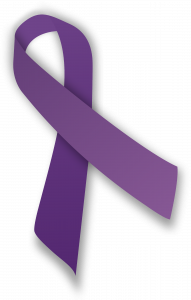Amber Kelly and Judah Viola
Learning Objectives
By the end of this section, you will be able to:
- Distinguish between various settings where community psychologists often work
- Describe diverse career roles within the field of Community Psychology
- Explore strategies for obtaining employment in the field of Community Psychology
- Understand unique skill sets or competencies used by community psychologists in various settings

Community psychologists seek to improve community well-being through a cycle of collaborative planning, action, and research in partnership with local community members. As indicated in the first chapter (Jason et al., 2019), we emphasize exploring issues with a systems lens approach, and focus on prevention and community contexts of behavior. Community psychologists embrace the core values of the field which include 1) prevention, 2) social justice, 3) ecological perspective, 4) respect for diversity, 5) active citizen participation, 6) grounding in research and evaluation, 7) interdisciplinary collaboration, 8) sense of community, 9) empowerment, 10) policy, and 11) promoting wellness.

The settings of community psychologists range from academia to non-profit organization. Typically, community psychologists complete graduate work in the field, but that is not required to engage in community work. The work of a community psychologist is dependent on an individual’s interest, training, and experience. Community psychologists can work as researchers, policy developers, educators, program evaluators, or program coordinators within academic, government and non-profit settings (SCRA, 2018). These are not the only roles and settings of community psychologists and within this chapter, we will explore a diversity of career paths and employment options. All community psychologists have a passion for specific community needs or topics. What community issues are you most excited about addressing?
Community Psychology Practice

Community Psychology practice typically refers to applied or practical work of community psychologists, which can involve a variety of activities related to a cycle of action and research such as community organizing, coalition building, program development or program evaluation, policy, advocacy, grant writing, data collection, data analysis, or report writing. Community Psychology practice occurs in many community settings outside of the classroom or research center such as schools, community-based non-profit organizations, places of worship, health clinics, parks, community centers, or other neighborhood gathering spaces.
Skill Sets of a Community Psychologist

Due to the diversity of activities and settings for Community Psychology practice and its focus on systems, context, programs, and organizations as opposed to individuals, the field has decided not to have their members receive a license to practice. Rather, members of SCRA have developed competencies for Community Psychology practice to “…provide a common framework for the discussion of skills involved in Community Psychology practice, and how those skills can be learned” (SCRA, 2012, p. 9). The 18 competencies help define and clarify the unique combination of skills and values that differentiate community psychologists from other people working in community settings. They fall into five categories: 1) foundational principles, 2) community program development and management, 3) community organizational capacity building, 4) community and social change, and 5) community research. See the chapter by Wolfe (2019) in this book to view a complete list of the competencies by category. To learn more about the competencies in Community Psychology check out Dalton and Wolfe (2012) and Wolfe and Price (2017).
If you want to dig even further into how a specific competency is used in work settings, see Elias, Neigher, and Johnson-Hakim (2015) which provides case examples of how each competency is enacted in practice. See Scott and Wolfe’s Community Psychology: Foundations for Practice (2015) which provides case examples of how each competency is enacted in practice. In addition, the Community Tool Box has an Ask An Advisor Tool which provides more examples of how to apply the competencies in different settings. Note that some Community Psychology scholars have raised concerns about the potential limiting aspects of focusing on competencies or provided counterpoints for their value (e.g., Dzidic et al., 2013). There are also some additional models or ways to categorize the skills of a community psychologist such as the one by Arcidiacono (2017), who describes the TRIP model (which stands for Trustfulness, Reflexivity, Intersectionality, and Positionality) as the core methodological skills acquired by community psychologists in their training as well as their basic values.
NON-TRADITIONAL COMMUNITY PSYCHOLOGISTS

It is important to keep in mind that there is no one path to becoming a community psychologist. The path is determined based on the needs and preferences of an individual, which makes the journey flexible. Non-traditional community psychologists pursue training in other academic fields or has lived experiences as a community advocate. They do not take the traditional route of pursuing formal graduate training in Community Psychology. For example, some community psychologists pursue training in other fields that share similar values and approaches (e.g., Public Health, public service management, Social Work, Applied Anthropology, Applied Social Psychology, Sociology, and disability studies). In fact, many community psychologists have diverse training, backgrounds, and experiences that allow them to make the field rich in diversity. Check out these unique paths of community psychologists in Case Study 3.1. and Case Study 3.2.
Case Study 3.1
Nicole Freund

“As an undergrad, I found psychology fascinating, but had no idea there was a discipline outside of clinical work. I did not want to be a clinician, so I didn’t consider psychology as a major, instead graduating with a degree in English and theater. I went on to graduate school for English and got an MA in rhetoric and composition and then spent my first year in Wichita (I got married and moved to Wichita, KS after receiving my MA) adjunct teaching 6 intro writing classes at 4 universities. I did so much adjunct work (and couldn’t get a full-time instructor gig), that I burned right out and my newlywed family couldn’t make ends meet, so I jumped ship and started working in public relations for a private consumer goods company. I did PR and brand marketing work at that company for about 5 years, earning an MBA along the way. At the 4-5 year mark, I started doing marketing research for the company and pretty soon, that became my full focus. I was the sole researcher at the company, so I was responsible for understanding consumer behaviors across a bunch of different activities, cultures, and products. It really got me interested in why people think the way they do, and why they behave in certain ways. After 11.5 years at the company, the context had changed so much that it was just not healthy for me to stay, and I started looking at exit strategies. I came across psychology again after last having considered it more than a decade before, and this time I was introduced to community psych, which really resonated with me. I applied for a spot in the Wichita State University Ph.D. program and spent the next 5 years learning about what I should have learned so many years before. It felt like home. For my practicum, I began working at what is now the Center for Applied Research and Evaluation at the Community Engagement Institute. We do primarily program evaluations, and being able to juggle multiple partners, understand that what a partner needs is not always an RCT (randomized control trial) or “bullet-proof” report, and handle a wide variety of methodologies was incredibly useful. The practice of community psych as an evaluator is something of a different animal than practicing in other ways and definitely different than an academic path. After my practicum, I was offered and accepted a full-time position as a research associate, and now that I’ve successfully defended, I plan to stay at CARE as a research scientist. I came to my position through a winding path that ultimately provided me with skills I wouldn’t have had otherwise. The relationships I was able to cultivate in my Ph.D. program certainly impacted where I ended up, and I’m so grateful to know and work with the people I do. The future is obviously unwritten, but I feel like my weird journey to a Ph.D. at 41 (technically 42 by the time I walk), has definitely set me up to find opportunities I wouldn’t otherwise have.”
Case Study 3.2
Monica Adams-Terraso

“As with many community psychologists, I followed a circuitous path to my current role. As an undergraduate psychology major at the University of Iowa, I volunteered at the local AIDS care center and completed a mixed methods internship at the University of Iowa Hospital in the HIV/AIDS clinic. I really enjoyed the qualitative interviews and working with patients to share their needs and voices, and soon presented my first scientific poster. After a summer internship in London, I realized that the individualized nature of clinical work, especially with a psychoanalytical orientation, was not my path, and abandoned the idea of going to graduate school for clinical psychology. I was at a loss for what to do next when a mentor introduced me to the field of public health. I joined the Master of Public Health program at the University of North Carolina-Chapel Hill (UNC). Here I encountered my first community psychologist—a professor doing innovative research on marketing and internet tobacco sales. I conducted research on adolescent alcohol and tobacco use and did a practicum with a rural anti-smoking coalition. After graduation, I moved to Chicago to work at DePaul University’s Center for Community Research. My boss and later advisor mentored me in the application of Community Psychology to real-world problems. I saw how you could blend both public health and psychology to advocate for underrepresented populations and concentrate on systems. This led me to apply for the Community Psychology program at DePaul University. In graduate school, I continued my work on tobacco policy—with an emphasis on the school setting and geo-spatial analysis. I conducted applied research projects, and after receiving my Ph.D. focused heavily on evaluation and practice around substance use prevention and community engagement. The emerging opioid epidemic pushed me to focus more on data to action, and I applied to the Epidemic Intelligence Service—the Center for Disease Control and Prevention’s training program for disease investigation and epidemiology. This fellowship transported me to a local public health department in Las Vegas. There I responded to several outbreaks including setting up a measles vaccination clinic at a large casino, evaluating lab results for Zika virus, and importantly, traveling to Sierra Leone to support Ebola prevention efforts. While there, I worked on the health promotion team to conduct rapid community assessments in ongoing transmission areas and worked with disease survivors, a much-stigmatized group. Once the fellowship was over, I went back to my first public health interest area—HIV/AIDS—to find my current home as an epidemiologist within the Centers for Disease Control and Prevention. Here I support bio-behavioral disease surveillance to understand HIV transmission within networks of people who inject drugs. My training as a community psychologist gave me skills to conduct research with marginalized populations, think about policy levers, and apply varied analysis methods and tools. It ultimately led me to a federal agency where I get to use my expertise to support and impact national initiatives around HIV elimination.”
As mentioned, graduate training in Community Psychology is not required to engage in community work. You may fall into this category of having a passion for community work but with no desire to receive formal graduate training. Furthermore, some non-traditional community psychologists have not received formal training (e.g., graduate training in Community Psychology or related field). They can be community members and/or leaders who identify as community psychologists due to their work in the community. The community-grounded work aligns with the principles and values within the field. One common approach of community psychologists is to collaborate with community members. In addition, non-traditional and traditional community psychologists share in common an understanding that the solutions to community challenges lie within communities. The approach is bottom-up and ensures that the voices of the community drive the search for and implementation of solutions. The Asset-Based Community Development Institute is a great resource to support community-engaged work that does not necessarily require traditional training.
COMMUNITY PSYCHOLOGY WORK SETTINGS
When exploring working in the field of Community Psychology, consider which job setting aligns with your interest and skill set. Be open to trying different settings to figure out what works best for you. One of the great things about the field is that you can create a career path that is uniquely yours. There is no perfect roadmap to working as a community psychologist. Community Psychology-oriented job seekers may desire working in one or both of the following setting tracks: academic or practice.
Academic Settings
Academic community psychologists often have faculty appointments and teach at the collegiate level and/or engage in community-based participatory research or evaluation work. Higher education settings also include research or evaluation centers or institutes and student support services units that focus on the health and academic success of students. Community psychologists who work in academia typically receive formal graduate training. To learn more about graduate training, review the last chapter of this textbook (McMahon & Sánchez, 2019).
Practice Settings
Practice settings include non-profit organizations, consulting, government, health care, or for-profit organizations. What setting will fit you? Check out Practical Application 3.2 below to learn more about different opportunities. Each setting description gives insight into what takes place at each setting. Also, visit the websites of the examples to get a better picture of how people in each environment engage in their work. In some cases, practice environments may fall into multiple categories due to their scope of work. Explore the different options and think about which setting is best for your interests.
Practical Application 3.2
Practice Settings
The practice setting categories listed below are not mutually exclusive. Some organizations may fall in multiple categories.
Non-Profit Organizations
Local or national organizations that focus on a specific cause. They invest their income back into the organization to further their cause as opposed to distributing the earnings to shareholders, leaders or members. They are often tax-exempt due to their charitable purpose and the value they add to the public.
Examples of Non-Profit Organizations:
Consulting and Research Firms
Community psychologists may work as independent consultants or employees at small, medium, or large consulting firms that provide advice and support to other organizations looking to make decisions or change something within their organization.
Examples of Consulting and Research Firms:
- Community Evaluation Solutions
- Community Science
- Susan Wolfe and Associates LLC
- Brookings Institution
- Westat
Government Positions
A legislative, executive, or judiciary department, agency, or commission that establishes and enforces laws and regulations and provides basic infrastructure, health, education, public safety, and commerce/trade to support its citizenry. Community psychologists work in local municipalities, county, state, and the federal government.
Examples of Government Positions:
- National Institutes of Health
- Centers for Disease Control and Prevention
- Healthy People
- Department of Education
- Office of the Inspector General
- Veterans Administration
- Congressional Budget Office
Healthcare Organizations
An organization that provides health care or related services (e.g., health-focused research).
Examples of Healthcare Organizations:
- St. Jude Children’s Research Hospital
- World Health Organization
- Shirley Ryan Ability Lab (formerly Rehabilitation Institute of Chicago)
- Atlantic Health Systems
Educational Sector Opportunities
Community psychologists can be found in just about every setting you can imagine within the educational sector. We work in public and private daycare centers, pre-school, primary and secondary schools (pre-K through 12th grade), school district research and assessment/evaluation offices, tutoring centers, after-school enrichment programs and prevention programs, colleges and universities, and more.
Examples of Educational Sector Opportunities:
- Headstart
- School Districts
- Individual Local Schools
- Private Schools
- Charter School Systems
Practice settings allow community psychologists to use Community Psychology practice in an applied environment. Typically, job responsibilities do not focus on gaining publications in scholarly journals, which is usually emphasized in academia. While these practice-oriented community psychologists might not focus on research and publishing, the methods and approaches used in practice settings are based on previous research. Job titles can range from Program Coordinator to Director of Program Evaluation. While each job title may or may not require a degree in Community Psychology, it is important to understand job responsibilities.
Gain Experience in Areas of Interest

If you are not sure which setting you prefer, volunteer or complete an internship, fellowship, or service year (e.g., AmeriCorps, PeaceCorps, Teach for America), in order to figure out which experience is the best fit for you. In addition, professional organizations offer mentorship programs to connect professionals with students and/or community members who desire more guidance in the field (e.g., SCRA, American Evaluation Association, Society for Research on Adolescence’s Undergraduate Scholars Program, Society for Research in Child Development, Millennium Scholars Program, Early Career Interdisciplinary Scholars Fellowship Program). Individuals who are interested in gaining more experience in the area of research or policy should consider looking into relevant programs (e.g., American Psychological Association Fellowship, the American Association for the Advancement of Science, Center for Disease Control and Prevention Fellowship).
COMMUNITY PSYCHOLOGISTS WORKING IN THE FIELD

Now that we have gone over some different settings for understanding career paths, let’s connect to some community psychologists working in the field. The Diverse Careers in Community Psychology book includes over 20 detailed examples of community psychologists describing their jobs and careers in the field. Here are examples of titles of working community psychologists who contributed to the book. To learn more about each community psychologist, click on their name to connect to their personal page. As you are exploring each community psychologist, do you notice any trends in career paths? How does their education relate to their job setting? What professional skills are listed? How are the community psychologists describing themselves in their bio description? Of the settings described in Practical Application 3.2, which ones pique your interest? Start exploring the community psychologists in that field first. Other great sources to learn about the career trajectories of individual community psychologists include Gloria Levin’s 60+ longtime interview-based columns, “Living Community Psychology” within The Community Psychologist (TCP).
Government:
Theresa L. Armstead—Behavioral Scientist in the Research and Evaluation Branch, Division of Violence Prevention, National Center for Injury Control and Prevention, CDC
Case Study 3.3
Theresa Armstead

Theresa Armstead is a member of the Intimate Partner Violence/Teen Dating Violence team and serves as the scientific lead for the evaluation of the DELTA FOCUS (Domestic Violence Prevention Enhancement and Leadership Through Alliances, Focusing on Outcomes for Communities United with States) program. She has nine years of program evaluation experience in the public health areas of chronic disease prevention, violence prevention, HIV and AIDS prevention, and emergency response.
Richard A. Jenkins—Health Scientist Administrator in the Prevention Research Branch of the National Institute on Drug Abuse, National Institutes of Health (NIH).
Faculty at Universities and Community Colleges:
Fabricio E. Balcazar—Professor in the Department of Disability and Human Development, the University of Illinois at Chicago
Ronald Harvey—Assistant Professor of psychology at American University in Bulgaria
Gregor V. Sarkisian—Associate Professor of psychology at Antioch University, Los Angeles, CA
Cari Stevenson—Professor at Kankakee Community College
University-Based Support Services and Researchers:
Lindsey Back—Senior Analyst in the office of Institutional Research and Assessment at Northeastern Illinois University
Luciano Berardi—Director of the McNair Scholars, Arnold Mitchem Fellows, and Research Lab programs at the Center for Access and Attainment at DePaul University
Crystal Reinhart—Research Program Specialist with the Center for Prevention Research and Development at the University of Illinois, Urbana–Champaign
Consultants at Small and Large Firms:
Small firms typically have 1-10 employees and larger firms include more than 10 or in the hundreds.
Michelle Bloodworth—Senior Research and Evaluation Specialist at Apex Education
Ashley Boal—Research Associate at WestEd in Los Alamitos, CA
Geraldine (Geri) L. Palmer—Managing Director at the Community Wellness Institute
Manolya Tanyu—Senior Researcher at the American Institutes for Research
Case Study 3.4
Manolya Tanyu

Manolya Tanyu has expertise in interventions in schools and community settings, program evaluation in youth development, mentoring, and social-emotional learning. Tanyu is a skilled methodologist, and she has worked on a number of evaluation projects to investigate processes, practices, and outcomes using qualitative and quantitative methods. She earned her doctoral degree in Community Psychology and prevention research from the University of Illinois at Chicago with a minor in methods and statistics.
Non-Profits and Foundations:
Foundations are considered grantmaking institutions and focus on awarding grants to non-profit organizations.
Teresa Garate—Vice President of Strategic Partnerships & Engagement at the Gateway Foundation
Judith Meyers—President and Chief Executive Officer of the Children’s Fund of Connecticut
Sharon Johnson –Hakim—Manager for Population Health Sciences at Atlantic Health System in Morristown, NJ
Alison J. Martin—Assessment and Evaluation Coordinator for the Oregon Center for Children and Youth with Special Health Needs
HOW TO GAIN EMPLOYMENT AS A COMMUNITY PSYCHOLOGIST

Community Psychology jobs typically do not specifically advertise “seeking a community psychologist,” so one challenge with the field is that its connection to psychology causes employers to make assumptions about the applicant’s skill set that is inaccurate. For example, an employer may assume community psychologists are trained in clinical work or therapy (McMahon & Wolfe, 2017). Therefore, it is important to first have a good sense of your expertise. Next, examine the job description to ensure it fits your skill set, interests, and alignment with Community Psychology competencies. When promoting yourself as a community psychologist, share the values of the field and the specific skills that match the desired role. Write a job description of your ideal job which includes work setting, salary, job description, and geographic region. Is your description similar to a typical description of a community psychologist? Why? Why not?
In Practical Application 3.3 below, there are some excerpts from job descriptions for positions held by community psychologists.
Practical Application 3.3
Community Psychology Job Descriptions
- Establishment of partnerships among local community institutions.
- Development, implementation, and evaluation of programs for the personal and social development of children and young people.
- Conduct evaluations and research related to preventing childhood obesity, local food systems, and food insecurity
- Conduct health research related to how communities and neighborhoods impact behavior and well-being
- Consulting with other non-profits who are education and child-development-oriented on projects related to school community building, education improvement, and lifelong learning.
- Test the efficacy of using the expressive arts and mindfulness to resolve loss, repair the moral injury, and mitigate post-traumatic stress in combat veterans.
Healthcare
- Lead population health initiatives including the dissemination of evidence-based prevention science and community capacity building.
- Manage a Public Health Institute—a research, development, and training organization
- Coordination of research and grant writing for multiple federally funded programs; and developing and implementing training programs around evidence-based practices.
- Chairman of a board of an organization that provides behavioral health care (mental health and substance abuse treatment) in 4 counties
- Design, manage, and conduct studies in a specific public health area; provide technical assistance on methods in quantitative and qualitative research
Consulting
- Community coalition work using environmental strategies to effect community change.
- Conduct Community-Based Participatory Research with under-represented communities on issues of cultural competence, capacity building for evaluation, rehabilitation outcomes for minorities, and evaluation of community-based interventions
- State mental health policy, program evaluation of state-funded programs, consultation and evaluation for private community organizations
- Consult on coalition building and community development
- Lead change management and capacity building for a geographically diverse community of public servants.
Career Support

SCRA offers different ways to connect with others and gain additional career support. As a result of the diversity of topic interests among community psychologists, SCRA interest groups help to bring together others in the field with similar interests. If you are primarily interested in learning more about careers, we recommend checking out Early Career Interest Group. Also, consider participating in initiatives hosted by the Community Psychology Practice Council. For example, the council organizes calls to gain support for career challenges. Have you been working on a community project and hit a brick wall? Participating in peer consultation calls can help you overcome that obstacle and connect with potential mentors with expertise in the field.
Attending conferences and participating in professional development opportunities helps to network and identify mentors for potential job opportunities. At conferences, people with similar interests connect and establish future collaborations. The Midwest Eco Conference is a training opportunity that is completely run by students in the field to share their work and gain supportive feedback. Each year a different academic institution in the Midwest hosts the conference which serves as a leadership opportunity for students. To learn more about the history of the conference check out The Evolution and Growth of the Eco-Community Psychology Conferences. There are now similar conferences in different regions of the US.
Some community psychologists obtained their jobs through building relationships and created their own jobs. Another strategy is to join group email lists or “listservs,” such as those for SCRA, Community Based Participatory Research, and Culturally Responsive Evaluation and Assessment, to receive emails of new job postings in the field. For additional email lists related to public health see Partners in Information Access for the Public Health Workforce.
Professional development opportunities exist beyond conferences and these are typically workshops or webinars. The opportunities are offered through professional membership organizations, experts, consulting firms, government, and/or non-profit organizations (e.g., Tamarack Institute, American Evaluation Association Education Webinars, Evaluator’s Institute, American Educational Research Association, Association for Talent Development). These professional development opportunities listed above are examples but they are not the only options for professional development. An internet search will come up with additional options as well. Reach out to other professionals in the field to learn about which professional development opportunities that they can recommend for your interest. See Practical Application 3.4 for a list of employment-seeking strategies.
Practical Application 3.4
Employment-Seeking Strategies
- Identify and cultivate relationships with multiple mentors. However, limit the number of mentors to a number you can manage to connect with consistently.
- Build your network both within your field and across disciplines.
- Join and engage actively with professional associations within your areas of interest.
- Be intentional about building skills and competencies relevant to the sector and jobs in which you are most interested. Remember that you will continue to grow in these areas beyond graduate training.
- Align your CV (resume) to the skills and competencies needed for the specific job(s) you seek, and practice an “elevator speech” that helps future employers see how your experience, training, and competencies fit their contexts.
- Use multiple search techniques when looking for employment (e.g., job postings and organizational websites, networking, listservs).
- Keep confident, consistent, get support, and recognize that part of your real- life training and development as a community psychologist involves seeking new positions.
(Cited directly from Viola, Glantsman, Williams, & Stevenson, 2017).
SUMMING UP

Community psychologists apply various Community Psychology practice competencies in their job roles. The two main job tracks within Community Psychology are academia and practice, and career paths of community psychologists can be traditional or non-traditional. Community psychologists work in various settings such as non-profit organizations, consulting, government, healthcare, for-profit, and academic settings. Community psychologists find jobs through networking, responding to postings on email listserv and online job postings, and can also co-create jobs with organizations they respect and work with on community projects.
_____________________________________________________________________
REFERENCES
Arcidiacono, C. (2017). The Community Psychologist as a reflective plumber. Global Journal of Community Psychology Practice, 8(1), 116. http://www.gjcpp.org/
Dzidic, P., Breen, L. J., & Bishop, B. J. (2013). Are our competencies revealing our weaknesses? A critique of Community Psychology practice competencies. Global Journal of Community Psychology Practice, 4(4), 110. http://www.gjcpp.org/
Elias, M. J., Neigher, W. D., & Johnson-Hakim, S. (2015). Guiding principles and competencies for community psychology. In V. C. Scott & S. M. Wolfe (Eds.), Community psychology foundations for practice (pp. 35–62). Sage Publications.
Jason, L. A., Glantsman, O., O’Brien, J. F., & Ramian, K. N. (2019). Introduction to the field of Community Psychology. In L. A. Jason, O. Glantsman, J. F. O’Brien, & K. N. Ramian (Eds.), Introduction to Community Psychology: Becoming an agent of change. https://press.rebus.community/introductiontocommunitypsychology/chapter/intro-to-community-psychology/
McMahon, S. D., & Sánchez, B. (2019). Looking into your future. In L. A. Jason, O. Glantsman, J. F. O’Brien, & K. N. Ramian (Eds.), Introduction to Community Psychology: Becoming an agent of change. https://press.rebus.community/introductiontocommunitypsychology/chapter/looking-into-the-future/
McMahon, S. D., & Wolfe, S. M. (2017). Career opportunities for Community Psychologist in APA. In C. M. Bond, I. Serrano-Garcia, C. B. Keys, & M. Shinn (Eds.), APA handbook of Community Psychology: Methods for community research and action for diverse groups and issues (Vol. 2, pp. 645-659). American Psychological Association.
Scott, V. C., & Wolfe, S. M. (2015). Community Psychology: Foundations for Practice. Sage Publications.
Society for Community Research and Action (2012). Competencies for community psychology practice: Draft August 15, 2012. The Community Psychologist, 45(4), 7-14.
Viola, J., Glantsman, O., Williams, A., & Stevenson, C. (2017). Answers to all your questions about careers in Community Psychology. In J. J. Viola & O. Glantsman (Eds.), Diverse careers in Community Psychology.(pp. 1-19). Oxford University Press.
Wolfe, S. M. (2019). Community Psychology practice competencies. In L. A. Jason, O. Glantsman, J. F. O’Brien, & K. N. Ramian (Eds.), Introduction to Community Psychology: Becoming an agent of change. https://press.rebus.community/introductiontocommunitypsychology/chapter/practice-competencies/
Wolfe, S. M., & Price, A. W. (2017). The application of the Community Psychology practice competencies for community consulting practice in the U.S. Global Journal of Community Psychology Practice, 8(1), 1-14. http://www.gjcpp.org/

